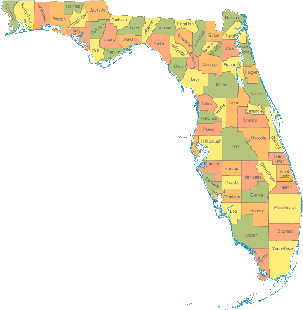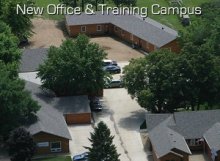Florida Mold CEUs

Mold assessors and mold remediators in Florida are required to become licensed. After
becoming licensed, there are biennial requirements to complete continuing education.
61-31.504 Continuing Education Requirements for Biennial Renewal
(1) Prior to the expiration of each biennial licensure period, and as a condition for renewal of the mold assessor and/or mold remediator license, each person licensed pursuant to Chapter 468, Part XVI, Florida Statutes, shall complete a minimum of fourteen (14) hours of continuing education which shall include, at a minimum, all of the following subjects as they relate to the practice of mold assessment and/or mold remediation:
(a) A minimum of six (6) hours of instruction regarding water (moisture intrusion),
(b) A minimum of four (4) hours of instruction regarding mold and mold safety, to include respiratory protection,
(c) A minimum of two (2) hours of instruction regarding report writing,
(d) A minimum of two (2) hours of instruction regarding standards of practice.
(2) Continuing education credits may be obtained for the completion of courses or seminars offered by education providers approved by the department. A list of such providers is available from the department at www.myfloridalicense.com/CESearch.asp?SID=&div=07
The Professional Mold Inspection Institute (PMII) offers the following courses which can be used to fulfill these continuing education credits for mold inspectors and remediators in Florida:
- This 90-hour course covers the basics of mold, mold terminology, mold sampling procedures, mold equipment and mold inspection report writing. The course teaches you how to perform a professional mold inspection at a residential property based on the EPA guidelines for mold and in accordance with the standards of NAMRI, the National Association of Mold Remediators and Inspectors.





- This 16-hour, comprehensive Certified Commercial Mold Inspector (CCMI) Course teaches you how to inspect for mold on commercial property, including office buildings, warehouses, shopping centers, apartment complexes, and multi-unit properties. The CCMI course is an addendum to the residential course and includes the protocols for identifying mold, assessing mold damage, and the proper procedures for collecting mold samples.

Mold Remediation Certification
- The 40-hour Certified Mold Remediator Course gives you the training and certification necessary to do mold remediation for mold contamination for both large and small projects. You will learn how to clean mold, contain contamination from mold, and prevent mold from reoccurring. You will gain a thorough and in-depth knowledge of mold remediation including: Making a preliminary determination, calculating costs, contracting labor, determining the scope of the remediation project, and developing a 5-step project plan.

Mold Remediation Protocols
- In the absence of state or federal guidelines, it is up to the mold professional to decide which protocols to follow. Most remediation companies will follow procedures from one of two respected organizations: The New York City Department of Health and Mental Hygiene (DOHMH) Guidelines on Assessment and Remediation of Fungi in Indoor Environments or The Institute of Inspection, Cleaning and Restoration Certification (IICRC) S520 Standard and Reference Guide for Mold Remediation. This course summarizes, compares and contrasts the procedures from both organizations.

Infrared Moisture Survey
- This 24-hour course is designed to help you expand your thermal testing business to include infrared moisture surveys. Providing this service will help your clients understand the source and extent of hidden water damage and moisture that could lead to significant structural damage or microbial growth. A professional infrared moisture survey report can be used to help guide repair efforts, to aid those writing mold remediation protocols, or to document expensive water damage claims for insurance policies.

 Physical Address:
Physical Address: